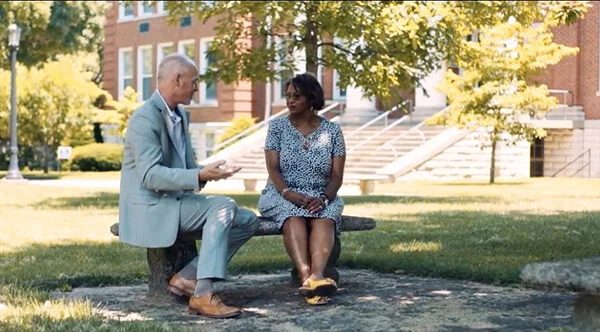As a former minister and now as an attorney, I have been working with families in healthcare emergencies and crisis situations like death and dying since 1991. The death of a loved one is deeply painful, sobering and usually creates conflict within families.

Without some preparation on your part, it will create conflict in yours, too. This is the time when we want our children to give each other love and support. Here are 5 things you can do to ensure the last time your kids speak is NOT at your funeral.
Talk. Talk about what you want for your estate, funeral, care, home or money. Explain your reasons. Ask your children for their input. If you’re not sure where to start, we have a free guide to help you get the conversation started.
Make a Plan (and tell your children what your plan is). Plan your funeral. Create your will, trust, living will and put your Power-of-Attorney in place.
Explain to the children who you want to lead. Tell them who will be in charge of the estate, health care choices and financial matters. Choose someone who can handle the responsibility.
Lay out your care preferences. Share your care preferences (in a home, a facility, or with a family member), what quality of life you want, how you feel about others caring for you and your concerns of burdening others, the type of treatments you want or do not want, and how this will be paid for.
Be clear what matters to you about your house and money. If your house is important to you, say so and how the family should care for it. Tell them whether it is to be sold or kept in the family. The same goes for your financial resources.
When you talk with your kids about end-of-life issues it helps them be better prepared and able to deal with them. It will help you know where they are coming from, allowing you to make better choices. It will help you see potential problems in advance as well.
We see how the lack of preparation can wound a family and possibly tear it apart. At Elder Law Guidance, we want to help you preserve your assets AND your family. Call us at (859) 544-6012 for an appointment or for a free guide to help you and your family start these conversations together.
The Structure of Wills and Family Harmony
The structure of a will can significantly influence sibling relationships after a parent’s funeral. A well-crafted will, transparent in its intentions, can mitigate potential conflicts among siblings.
Conversely, vague or unequal distributions can ignite disputes, especially when children perceive unfairness in the allocation of assets or sentimental items.
Effective communication is paramount in maintaining family harmony, both before and after funeral events. Open discussions about funeral plans and estate distribution can prepare family members, including children of various ages, for what to expect, reducing the shock and potential strife following the death of a loved one.
For instance, explaining the specifics of the will and funeral service arrangements ahead of time can alleviate misunderstandings among siblings, from the oldest to the youngest.
Moreover, considering the child’s age and maturity level when discussing these topics is crucial. While older children might grasp the concept of death and inheritance better, younger children may struggle with these realities.
For families with many children, tailored communication that addresses each child’s understanding and emotional state can foster a supportive environment, helping them process grief collectively.
In the context of a family’s dynamics, the death of a parent is a delicate period where the risk of lasting rifts is high. Thus, crafting a will that reflects clear, fair intentions and engaging in open, age-appropriate communication are vital steps in ensuring that the funeral service isn’t the last time siblings unite.
These actions not only respect the deceased’s wishes but also protect the emotional well-being of the family, laying the groundwork for enduring unity and support.
We see how the lack of preparation can wound a family and possibly tear it apart. At Elder Law Guidance, we want to help you preserve your assets AND your family. Call us at (859) 544-6012 for an appointment or for a free guide to help you and your family start these conversations together.

